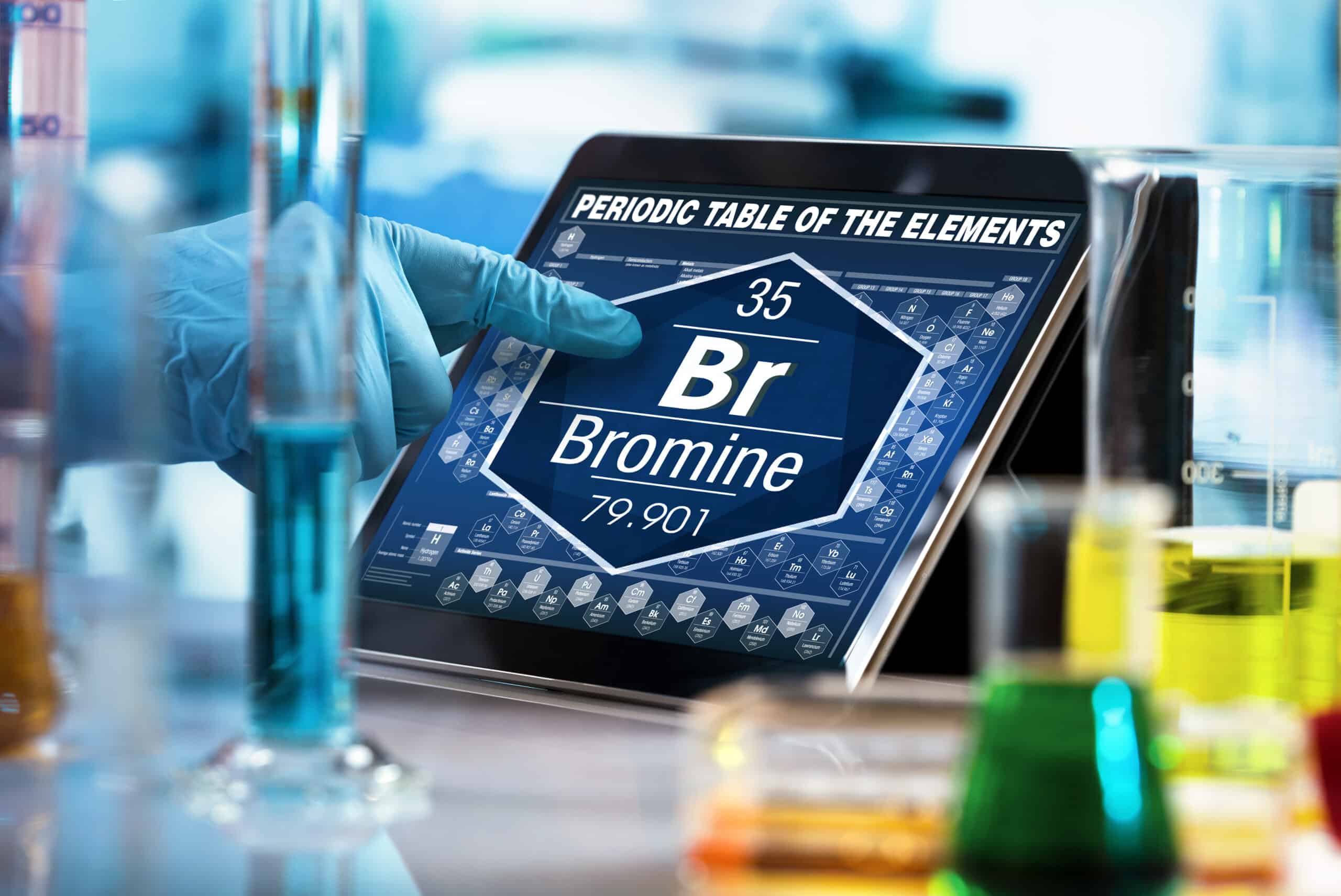Most people are aware of chlorinated pools and the chemical chlorine that is used to keep the water clean. Anyone who swam in a pool as a kid probably recalls the irritated reddened eyes and chlorine smell after swimming. (Note: the chlorine “smell” actually isn’t good….)
Over time, you may have learned about the chemical bromine used in place of chlorine and of course salt water pools that produce its own chlorine rather than simply adding the chemical version. These days you could also choose an ozone pool if you like.
The point is…you have options when it comes to how you sanitize your pool and keep the water clear. But since you have to occasionally use a chemical in your salt water pool to supplement the chlorine produced by the chlorinator, is bromine a suitable substitute?
Bromine can be twice the price of chlorine so it’s more expensive to use. Bromine also tends to be more stable in warm water like a hot tub than a cooler water outdoor swimming pool. Chlorine is a better choice for water under 75°F and can also be chemically stabilized against UV rays, unlike bromine.
While you could use bromine in a salt water pool in place of chemical chlorine when required, it’s not worth the bother or effort. Chlorine products are easier to find, are cheaper and are more appropriate for salt water pools when required.
And a salt water pool is a chlorine pool so you already have chlorine in it! Why bother adding another chemical – bromine is Br on the periodic table – when chlorine is already being used in your pool?
Below are some additional considerations and a comparison of how chlorine and bromine work and why sticking with chemical chlorine when required is your best choice.
Chlorine vs bromine comparison
From time to time, salt water pool owners will need to add chemical chlorine to their pools to supplement the chlorine produced by the chlorinator.
The question of can I use bromine in my salt water pool is a legitimate one. But as we’ll see below, a better question to ask is why would you want to, as we’ll see in this comparison table.
| Factor | Chlorine | Bromine |
| Cost | Cheaper than bromine, as little as half the price. The industry standard and long established for pool use so it’s easy to find and there are plenty of products, formats and sizes to choose from. | More expensive than chlorine, up to twice the price. Harder to locate and fewer products to choose from. |
| Suitability | Suitable in outdoor swimming pools as it works well in water under 65°F. | More suited to warmer water (hot tubs) and indoor pools as it remains stable at higher temperatures above 75°F. |
| Purpose | Used as both an oxidizer (moderately good) and sanitizer (very good) to clean pool water but is better as a sanitizer and disinfectant to kill bacteria. | Only works as a sanitizer. |
| Health | Can give off the so-called chlorine smell people often notice on their skin and on their clothes. Can redden eyes and irritate and dry your skin. | Has very little smell and is ok for people with sensitive skin. But it can be harder to remove from skin than chlorine. |
| Frequency of use | Must be used more frequently than bromine since it is less stable. Can be added manually or through a dispenser. | Can be used less frequently than chlorine since it is more stable. Best added through a feeder or dispenser rather than manually. |
| Considerations | Easy to find and widely available in various forms. Harder to keep pH balanced which is also more difficult in salt water pools in general. | Can’t be stabilized like chlorine. Not as easy to find as chlorine. Pool water is often somewhat cloudy when compared to chlorinated water. |
As you can see, for a salt water pool owner the question is pretty straight forward. Use chemical chlorine when required as it’s easier, cheaper and more suitable for a pool that already has chlorine in it.
One final note about chlorine vs bromine
The cloudier water appearance with bromine is due to its lower pH than chlorine’s. Bromine is less able to remove organic matter from water such as bodily oils or sweat. Chlorine is a better sanitizer than it is an oxidizer but bromine is strictly a sanitizer.
You often hear of bromine pool owners needing to use chlorine from time to time as a shock to clear up cloudy pool water. You don’t hear of chlorine owners using bromine as a shock.
Summary
While you could use bromine as a supplement for your salt water pool when required, it really makes little sense to do so. It’s more expensive, harder to find and doesn’t work as well in outdoor swimming pools as chlorine.
Plus your salt water pool is a chlorinated pool already so why mix chemicals and add bromine to the mix?
Stick with chemical chlorine in shock, crystal, puck or liquid form when required such as during pool opening and closing and during hot sunny periods during the summer when the pool is being heavily used.

